Category: Socialism

The Future Historians’ International Study Group and Collaborative Writing Project has obtained the following excerpts from the 2117 high school history book “Then, Now and How.” The title of this chapter is “#MeToo and the origins of today’s egalitarian society.”
For more information, go to http://futurehistorians.org/doku.php?id=start.
An interview with Steve Early
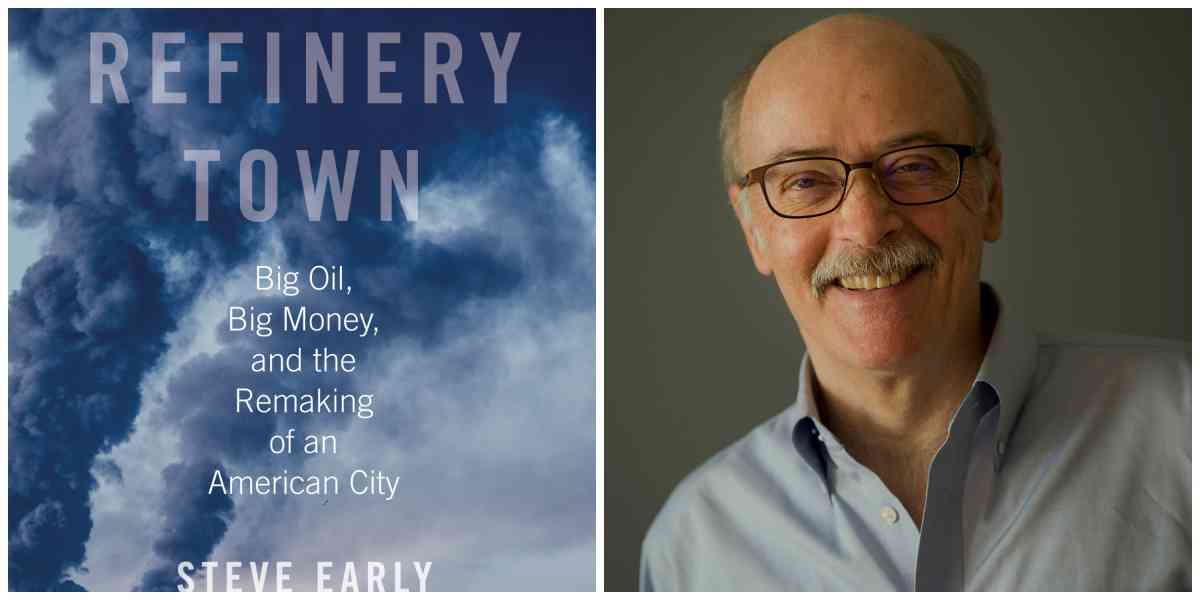
Mohsen Abdelmoumen: You have written a book about the city of Richmond, California, where you live, prefaced by Senator Bernie Sanders: Refinery Town: Big Oil, Big Money, and the Remaking of an American City. This book shows us the experience of this city that has won struggles such as raise the local minimum wage, defeat a casino development project, challenge home foreclosures and evictions, and seek fair taxation of Big Oil and Big Soda. Can we say that the Richmond experience should inspire progressive activists in other cities around the world?
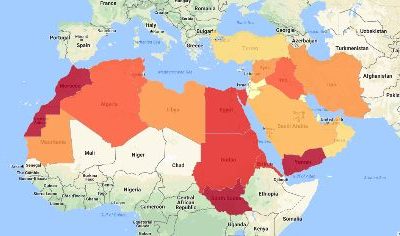
We are an alliance of Middle Eastern socialists opposed to all the international and Middle Eastern regional imperialist powers and their wars, whether the U.S., Russia and China or Israel, Saudi Arabia, Iran and Turkey. We also oppose other authoritarian regimes such as Assad’s in Syria and El Sisi’s in Egypt as well as religious fundamentalism whether of ISIS, Al Qaeda, Hezbollah or the Muslim Brotherhood. Although the Muslim Brotherhood and Hezbollah consider themselves gradualists and oppose the Jihadism of Al Qaeda and ISIS, all of these organizations share the goal of establishing a state based on Shari’a Law and preserving the current capitalist order.
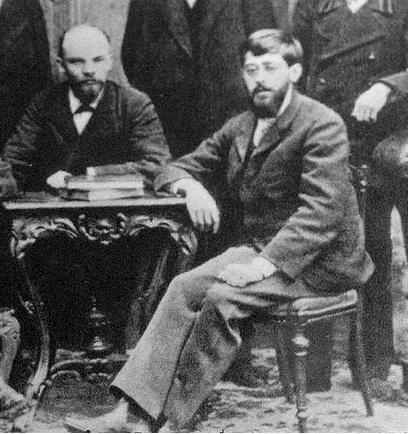
The greatest flaw of Mitchell Cohen’s “What Lenin’s Critics Got Right” in the most recent Dissent is that it repeats what Lars T. Lih, independent researcher and author of Lenin Rediscovered:‘What Is To Be Done’ In Context (Haymarket, 2008) and a biography of Lenin (Reaktion Books, 2011), calls the “standard textbook interpretation” of Lenin’s thought and, by extension, Bolshevism as a movement.
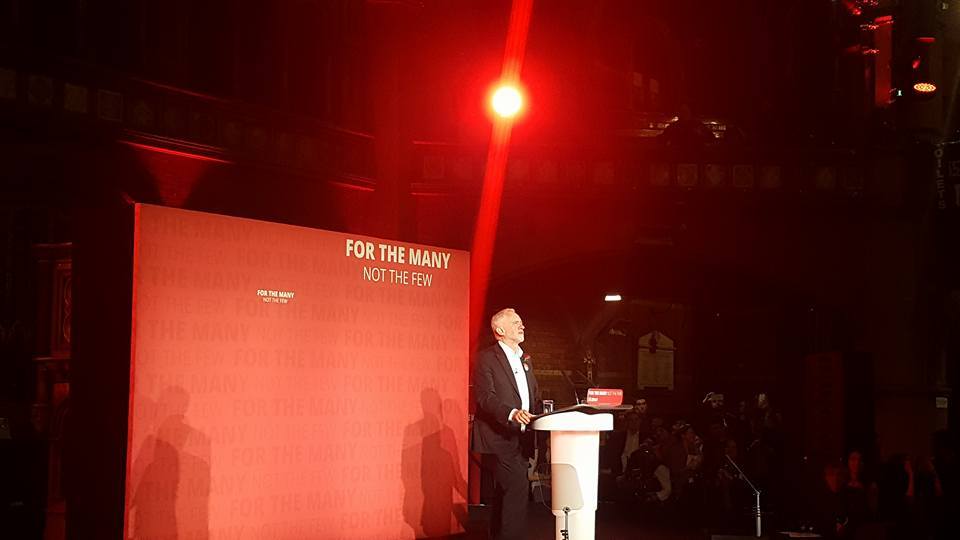
It is now seven months since Theresa May called a general election with the aim of increasing her majority and the Daily Mail published a front page headlined “Crush the Saboteurs”. The spring of this year, as regards parliamentary politics, seems like another world.
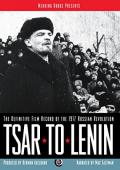 The Russian Revolution, the only—if only briefly—successful workers’ revolution took place in the era of photography and film, consequently thousands of hours of film footage from the revolutionary period existed. In the late 1920s, as the revolution’s red star was fading, a Russian-born man decided to collect as much as possible of the existing film—some of it shot by individuals, some by governments, some by new agencies, some by who-knows-who. Eventually, over 50 years this man collected some 271 motion picture film reels. He was a fanatic. Glad he was.
The Russian Revolution, the only—if only briefly—successful workers’ revolution took place in the era of photography and film, consequently thousands of hours of film footage from the revolutionary period existed. In the late 1920s, as the revolution’s red star was fading, a Russian-born man decided to collect as much as possible of the existing film—some of it shot by individuals, some by governments, some by new agencies, some by who-knows-who. Eventually, over 50 years this man collected some 271 motion picture film reels. He was a fanatic. Glad he was.
A Debate

Bennett Muraskin:
I look at the world for many decades now and do not see evidence that the class struggle is alive and well, except to the extent that workers are on the losing end. But even more than that, it does not appear that the class struggle is playing a key role anywhere in the world. All of the major conflicts are being fought on national, ethnic and/or religious grounds. In these conflicts, whether they are in Syria, Afghanistan, Yemen, Niger or even Catalonia, workers line up with their tribe.
Non-Reformist Reforms Will Mean Nothing If They Don’t Build Autonomy As Well
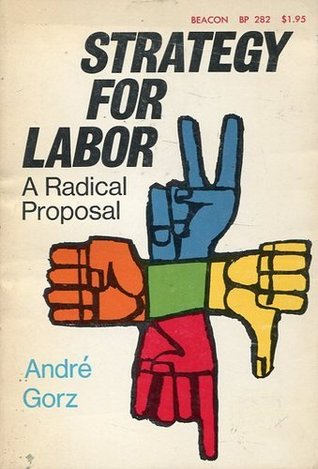
This August a hundred years ago, Lenin began to pen The State and Revolution in exile once more following a crippling defeat. Just one month prior, workers had risen and laid siege to government posts, but didn't know what to do beyond that. History didn't come down from above and give them a revolutionary society. This became obvious after the government sent troops to quell the uprising. The Bolsheviks, for their part, were caught off guard, and the workers’ movement underwent yet another cycle of repression.

Just before Christmas, on December 21, 1917, a strange freighter pulled into Elliott Bay in Seattle. This vessel bore an unfamiliar flag—a red flag. This was a Russian ship, the Shilka, out of Vladivostok, Russia. Only a few weeks before, on November 7, the Bolshevik Revolution had taken place in Russia and its leader, Vladimir Lenin, proclaimed a workers' and farmers' state.
 Ten Days That Shook the World By John Reed(Introduction by Vladimir Ilyich Lenin and A. J. P. Taylor) Penguin Classics / Random House, 368 pages revised ed., 2007 (originally published 1919) Paperback: $13.44 (available from numerous retailers) ISBN: 978-1420-930-252
Ten Days That Shook the World By John Reed(Introduction by Vladimir Ilyich Lenin and A. J. P. Taylor) Penguin Classics / Random House, 368 pages revised ed., 2007 (originally published 1919) Paperback: $13.44 (available from numerous retailers) ISBN: 978-1420-930-252
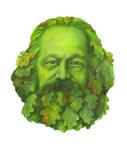
In “Militant Particularism and Global Ambition: The Conceptual Politics of Place, Space, and Environment in the Work of Raymond Williams” (1995), David Harvey discusses the challenges presented by moving from place out across time. In the midst of his involvement in a participatory research project within a high-stakes local struggle against the closure of an automotive plant, he was accused of being a “free-floating Marxist intellectual,” an outsider, and he was given the “evil eye” and asked to explain “where his loyalties lay.” (71) This is in an environment where people were losing jobs, and families and communities were being destroyed.
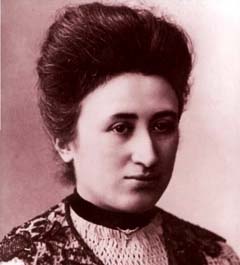 In recent years, Rosa Luxemburg’s name has gradually become more prominent in Chinese academia. A number of influential academic journals have even opened up research columns paying tribute to the revolutionary theorist, nearly a century after the first discussion of her work in China. This should be regarded as a second revival of the research on her in China. Compared with the other leading figures in the history of the international communist movement, whether worldwide or just in China, the present "Rediscover Luxemburg" phenomenon is unique. Regarding other leading figures, there have not been so many ups and downs.
In recent years, Rosa Luxemburg’s name has gradually become more prominent in Chinese academia. A number of influential academic journals have even opened up research columns paying tribute to the revolutionary theorist, nearly a century after the first discussion of her work in China. This should be regarded as a second revival of the research on her in China. Compared with the other leading figures in the history of the international communist movement, whether worldwide or just in China, the present "Rediscover Luxemburg" phenomenon is unique. Regarding other leading figures, there have not been so many ups and downs.
.jpg)
[This is the second of three articles commemorating the Russian Revolution of 1917 and analyzing its fate under Stalin. The first part, “Glorious Harbinger of a New Society: the Bolshevik Revolution,” was published in the previous issue of New Politics, number 62, winter 2017. The text below is slightly expanded from what appeared in the print issue.]
Soon after the Treaty of Brest-Litovsk was signed on March 3, 1918, the Soviet republic was under siege. Various anti-Bolshevik forces, some supported by the Allies or the Central Powers, were gathering. If these forces succeeded in reversing the October Revolution, what would be the result?
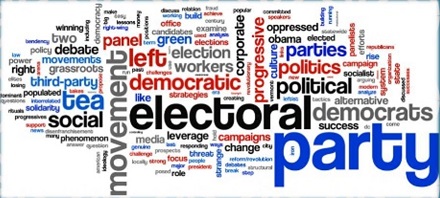
Democratic Socialists of America (DSA) is singular on the left as being both a broad radical socialist organization, encompassing left social democrats, Marxists and even a smattering of anarcho-syndicalists, combined with a strong face toward electoral politics. But an electoral orientation per se is not and cannot be the common denominator of our work. It is true that without an electoral face, any political organization is hamstrung and those on the left who argue that support for any Democrat anywhere is treasonous paint themselves into a corner. Electoral politics on the level it can be rationally conducted is worth doing. That, for me, is not in dispute. Its place in our work is what is problematic. Thinking in terms of power is about more than electioneering.

At a distance of one hundred years, the Russian Revolution, which truly shook the world, deserves to be remembered once more in terms of its emancipatory significance and its downfall and betrayal. This revolution would not have happened had it not been for the crucial role played by the Bolshevik party. It is true that the profound crisis affecting the Russian society, worsened by the country’s disastrous participation in World War I, could have sooner or later led to a massive upheaval. But it is questionable that a socialist revolution would have taken place without the organizational skills of the Bolshevik party and the political, strategic, and tactical genius of V.I. Lenin.
Summer 2017 (New Politics Vol. XVI No. 3, Whole Number 63)
Our last issue included a special section on “Russia: The Revolution and Beyond,” with articles by Thomas Harrison, Dan La Botz, Saeed Rahnema, and Stephen Shalom. In this issue, we continue with articles by Samuel Farber, Thomas Harrison (part 2), and Stefanie Prezioso, and an interview with Suzi Weissman.
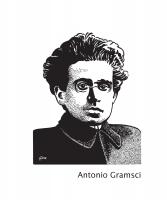
Eighty years after his death, Antonio Gramsci is among the most influential Marxist intellectuals across the board. By the end of World War II, liberal intellectuals had already found in him “a Marxist you can take home to Mother.” The tone was set by Benedetto Croce, who allegedly gushed in 1947, upon reading Gramsci’s Prison Notebooks, “He’s one of us!”1 It reached the point that the Sardinian activist can be presented today as no less than the guarantor of “Italian Democracy.”2
An Interview with Suzi Weissman

“Revolutions are the mad inspiration of history”
Leon Trotsky, My Life

Alex Kolokotronis is a 1st year PhD student in Political Science at Yale. He self-identifies as a libertarian socialist and is interested in studying anarchist movements, post-state forms of governance and public power, and associationist self-managed socialism. He is the co-founder of Student Organization for Democratic Alternatives (SODA), a group dedicated to implementing participatory budgeting and participatory democracy at the university level. Participatory budgeting is a directly democratic process by which ordinary people get to deliberate and decide how to allocate a designated budget. He previously worked in Worker Cooperative Development with Make the Road New York and the New York City Network of Worker Cooperatives.
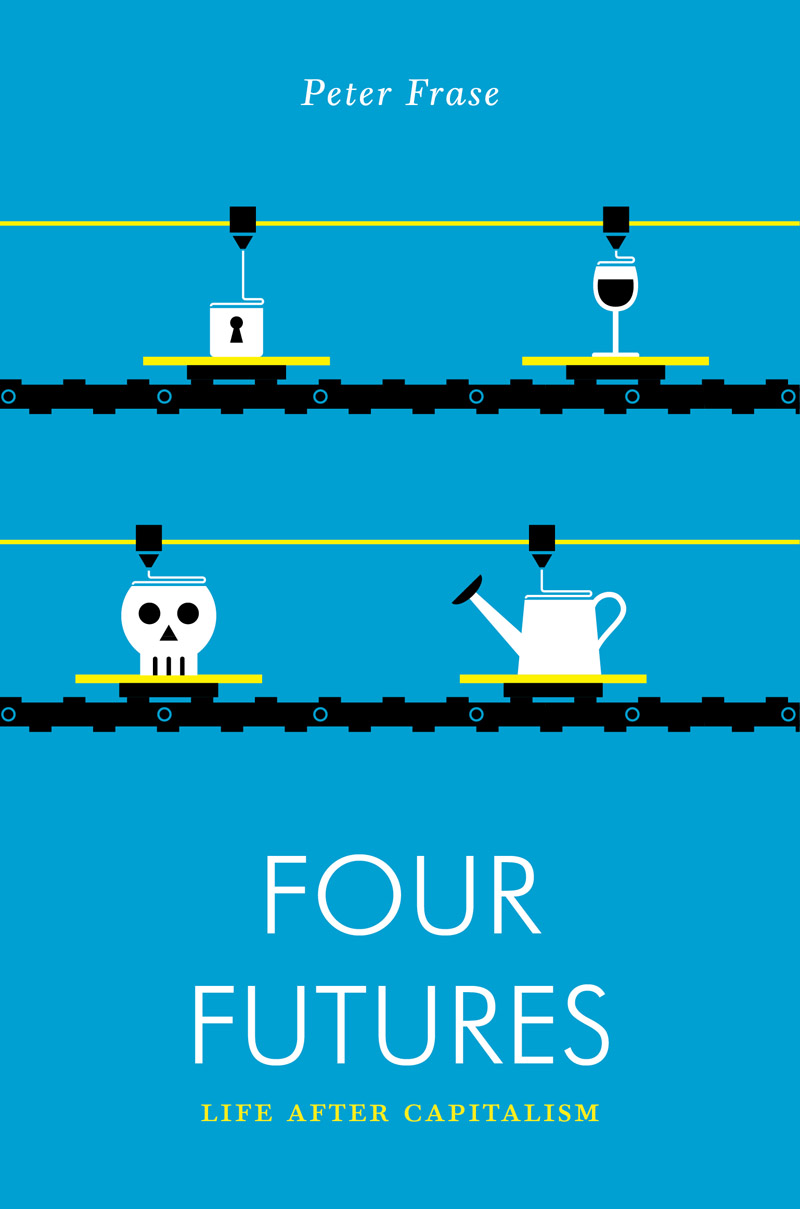 Peter Frase. Four Futures: Life After Capitalism. New York: Verso, 2016. 160pp.
Peter Frase. Four Futures: Life After Capitalism. New York: Verso, 2016. 160pp.
It borders on a disservice to characterize Four Futures: Life After Capitalism as a primer on contemporary political philosophy, since Peter Frase, the author, explodes any expectation of pedantry in his prose, or more importantly, in his approach to political theory, which he calls “social science fiction.”

Samuel Farber, The Politics of Che Guevara: Theory and Practice. Chicago: Haymarket Books, 2016. 192pp. $16.95
For two generations of activists, Ernesto Che Guevara has symbolized a kind of selfless heroism. His relative youth at his death in 1967 (he was 38) conserved his air of rebelliousness and the image of a man interested only in the struggle, rather than in power. Yet Sam Farber who acknowledges these qualities, describes him early in his new book, The Politics of Che Guevara, as “irremediably undemocratic”. The contradiction is striking and central to Farber’s critical analysis of Che’s life as a revolutionary.





 The Russian Revolution, the only—if only briefly—successful workers’ revolution took place in the era of photography and film, consequently thousands of hours of film footage from the revolutionary period existed. In the late 1920s, as the revolution’s red star was fading, a Russian-born man decided to collect as much as possible of the existing film—some of it shot by individuals, some by governments, some by new agencies, some by who-knows-who. Eventually, over 50 years this man collected some
The Russian Revolution, the only—if only briefly—successful workers’ revolution took place in the era of photography and film, consequently thousands of hours of film footage from the revolutionary period existed. In the late 1920s, as the revolution’s red star was fading, a Russian-born man decided to collect as much as possible of the existing film—some of it shot by individuals, some by governments, some by new agencies, some by who-knows-who. Eventually, over 50 years this man collected some 




 In recent years, Rosa Luxemburg’s name has gradually become more prominent in Chinese academia. A number of influential academic journals have even opened up research columns paying tribute to the revolutionary theorist, nearly a century after the first discussion of her work in China. This should be regarded as a second revival of the research on her in China. Compared with the other leading figures in the history of the international communist movement, whether worldwide or just in China, the present "Rediscover Luxemburg" phenomenon is unique. Regarding other leading figures, there have not been so many ups and downs.
In recent years, Rosa Luxemburg’s name has gradually become more prominent in Chinese academia. A number of influential academic journals have even opened up research columns paying tribute to the revolutionary theorist, nearly a century after the first discussion of her work in China. This should be regarded as a second revival of the research on her in China. Compared with the other leading figures in the history of the international communist movement, whether worldwide or just in China, the present "Rediscover Luxemburg" phenomenon is unique. Regarding other leading figures, there have not been so many ups and downs..jpg)





 Peter Frase. Four Futures: Life After Capitalism. New York: Verso, 2016. 160pp.
Peter Frase. Four Futures: Life After Capitalism. New York: Verso, 2016. 160pp.